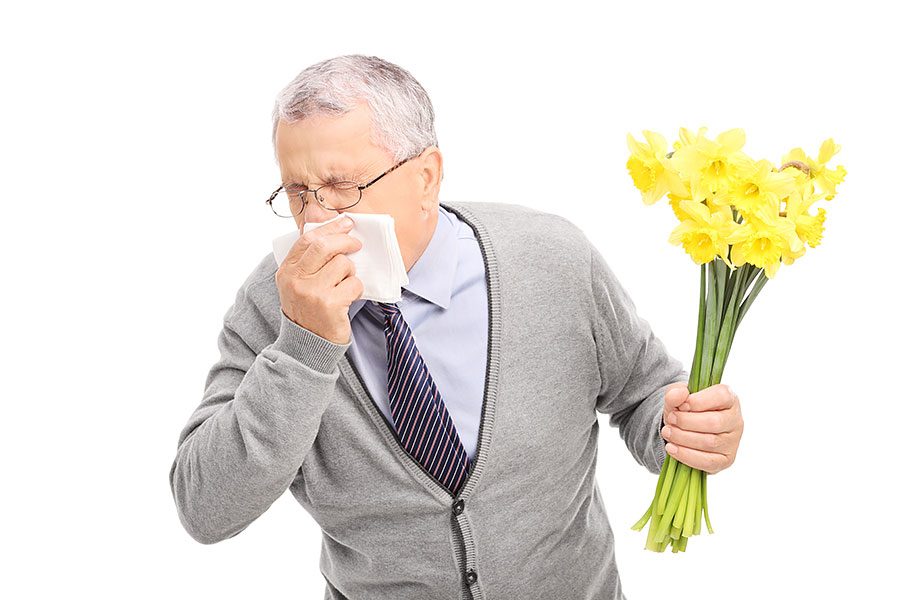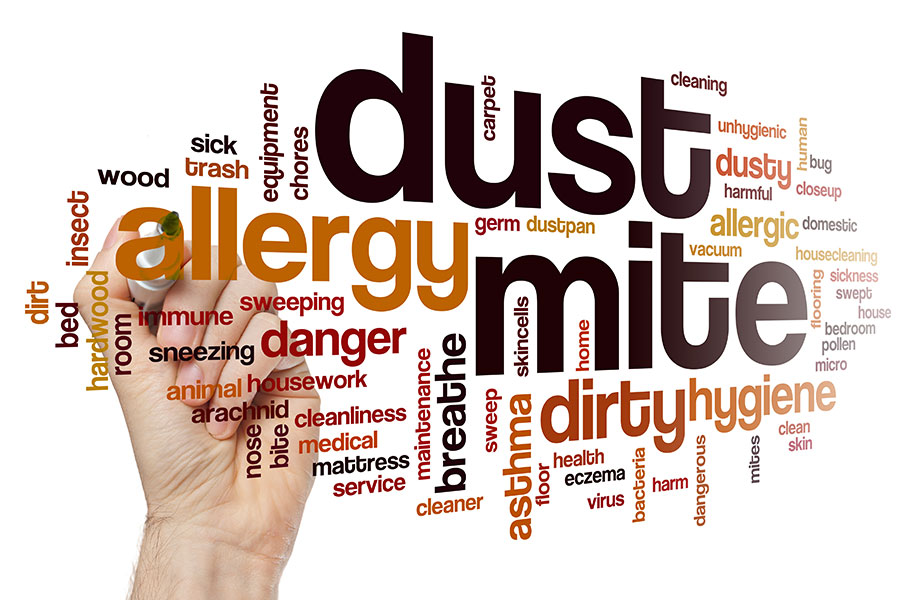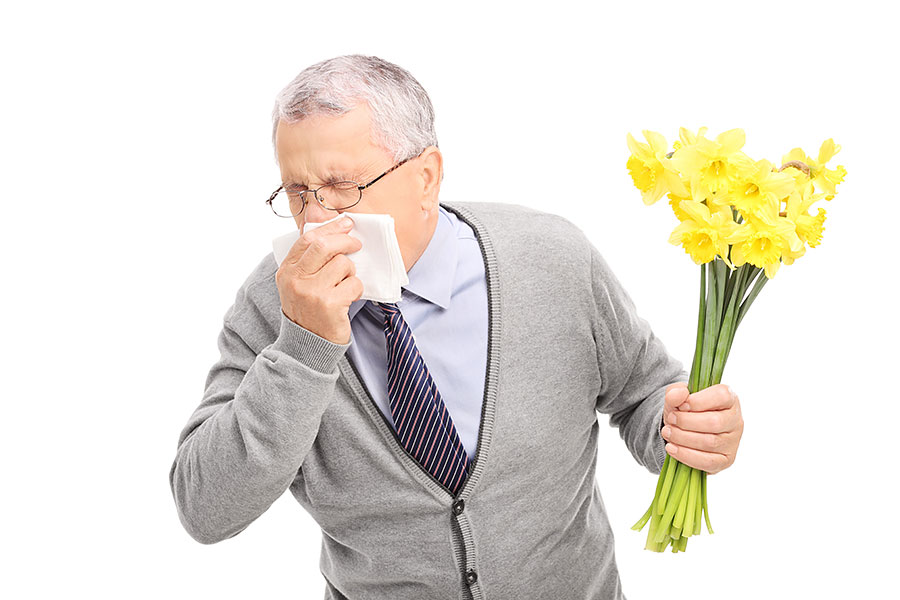While most people with allergies develop them as children, a growing number of adults in the U.S. are getting diagnosed with allergies for the first time. This could mean an allergy starting in young adulthood (20s) to older age (70s-80s).(1)
Researchers do not know what causes some adults to develop allergies, but there are a number of theories, including: antibiotic overuse in childhood, little exposure to allergens during childhood, moving to a new place, and a family history of allergies.(1)
Generally, people take more medications as they age. Diagnosis and management of allergic rhinitis (hay fever) can be challenging in older patients, who may take a number of medicines and have chronic health issues, such as asthma, high blood pressure, or heart disease. (2) Considering the fastest growing segment of the population is people ages 65 and over, the challenges for allergy providers are here to stay.(3)
People suffering from hay fever show symptoms after breathing in an allergy-causing substance, such as tree, grass or weed pollens, or dust. Symptoms include:
- Stuffy nose due to blockage or congestion, runny nose, or postnasal drainage
- Itching, usually in the nose, mouth, eyes, or throat
- Red and watery eyes
- Puffy, swollen eyelids
- Sneezing
- Cough(4)
Older people with hay fever often turn to over-the-counter medicines to control symptoms. First-generation antihistamines can be effective at addressing symptoms but may have serious side effects. Generally, second and third-generation antihistamines are considered safer for older patients.(5)
A study published in the Annals of Allergy, Asthma, and Immunology, examined the effectiveness of subcutaneous immunotherapy (allergy shots) for hay fever sufferers between the ages of 65 and 75. Half of the subjects received allergy shots for three years, and half received placebo. In patients receiving shots, symptoms were reduced by 55 percent and the amount of medication taken to reduce symptoms decreased by 64 percent. The study concluded that subcutaneous immunotherapy is safe in the elderly and results in an immune response comparable to what is found in younger patients.(2)
Practical lifestyle changes can help, as well. The Mayo Clinic offers these tips for reducing allergy triggers:
- Stay indoors on dry, windy days. The best time to go outside is after a good rain, which helps clear pollen from the air.
- Delegate lawn mowing, weed pulling and other gardening chores that stir up allergens.
- Remove clothes you’ve worn outside and shower to rinse pollen from your skin and hair.
- Don’t hang laundry outside — pollen can stick to sheets and towels.(6)
For allergy professionals, Xtract Solutions offers cloud-based Allergy Immunotherapy software, designed to organize the allergy practice, from initial testing through to successful completion of immunotherapy.
(1) Etudo,M., Molina, J. MD (reviewer) verywellhealth, Adult-onset Allergies, https://www.verywellhealth.com/
(2) American College of Allergy, Asthma and Immunology, https://www.newswise.com/
(3) Cardona, V. MD, Guilarte, M. MD, et. al., Clinical and Translational Allergy, Allergic Diseases in the Elderly, https://www.ncbi.nlm.nih.gov/
(4) American College of Allergy, Asthma, and Immunology, Allergic Rhinitis, https://acaai.org/allergies/
(5) American College of Allergy, Asthma, and Immunology, Medications and Older Adults, https://www.aaaai.org/
(6) Mayo Clinic, Seasonal Allergies: Nip Them in the Bud, https://www.mayoclinic.org/




